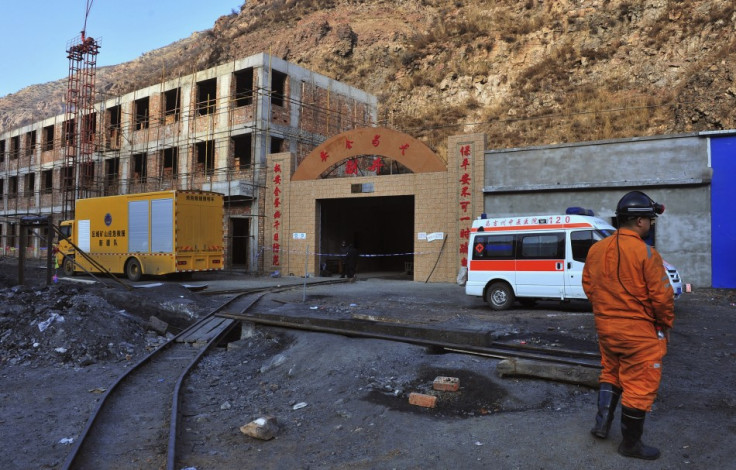China Coal Mine Explosion Claims 21 Lives

A coal mine explosion in the Xinjiang province of China has killed 21 workers. About 34 miners were trapped inside the mine at the time of explosions. Twelve of the workers escaped unharmed, while one sustained injuries, according to State news agency Xinhua.
Xinjiang's work safety bureau refused to give further details and said that investigations are under way to ascertain the cause of the explosion. Early reports suggested the incident was probably caused by a failure to ventilate methane gas from the shaft.
Explosions happen in underground mines if methane gas released from the coal seam and surrounding rock strata during mining is not vented out.
Chinese mines have a poor safety record. In 2012, 1,384 people were killed in coal mining accidents in the country, a drop from the 2011 toll of 1,973.
Some rights groups have said the actual figure could be higher due to under-reporting by mining companies, according to AFP.
In March, a blast at a coal mine in Jilin province had killed 28 people, while two other major blasts in May killed about 50 miners in two separate incidences in Sichuan and Guizhou provinces.
China Labour Bulletin reported in 2010 that a senior government official expressed concern over lax enforcement of safety laws and inadequate investment in coal mine safety and worker training.
The rate of accidents has declined in recent years but China still has world's worst track record of coal-mine related incidents.
© Copyright IBTimes 2025. All rights reserved.





















